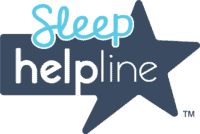Narcolepsy symptoms and treatment interact with conception, pregnancy, and breastfeeding in complex ways. How do you decide what’s right for your family? Watch our “Pregnancy & Narcolepsy” episode of Narcolepsy Nerd Alert for an in-depth discussion including patient AND provider perspectives.
The Narcolepsy Nerd Alert series invites listeners to dive deeper into specific topics relevant to living with narcolepsy. To explore more topics related to living with narcolepsy, visit our Narcolepsy Nerd Alert page and check out corresponding toolkits available to download for free.





